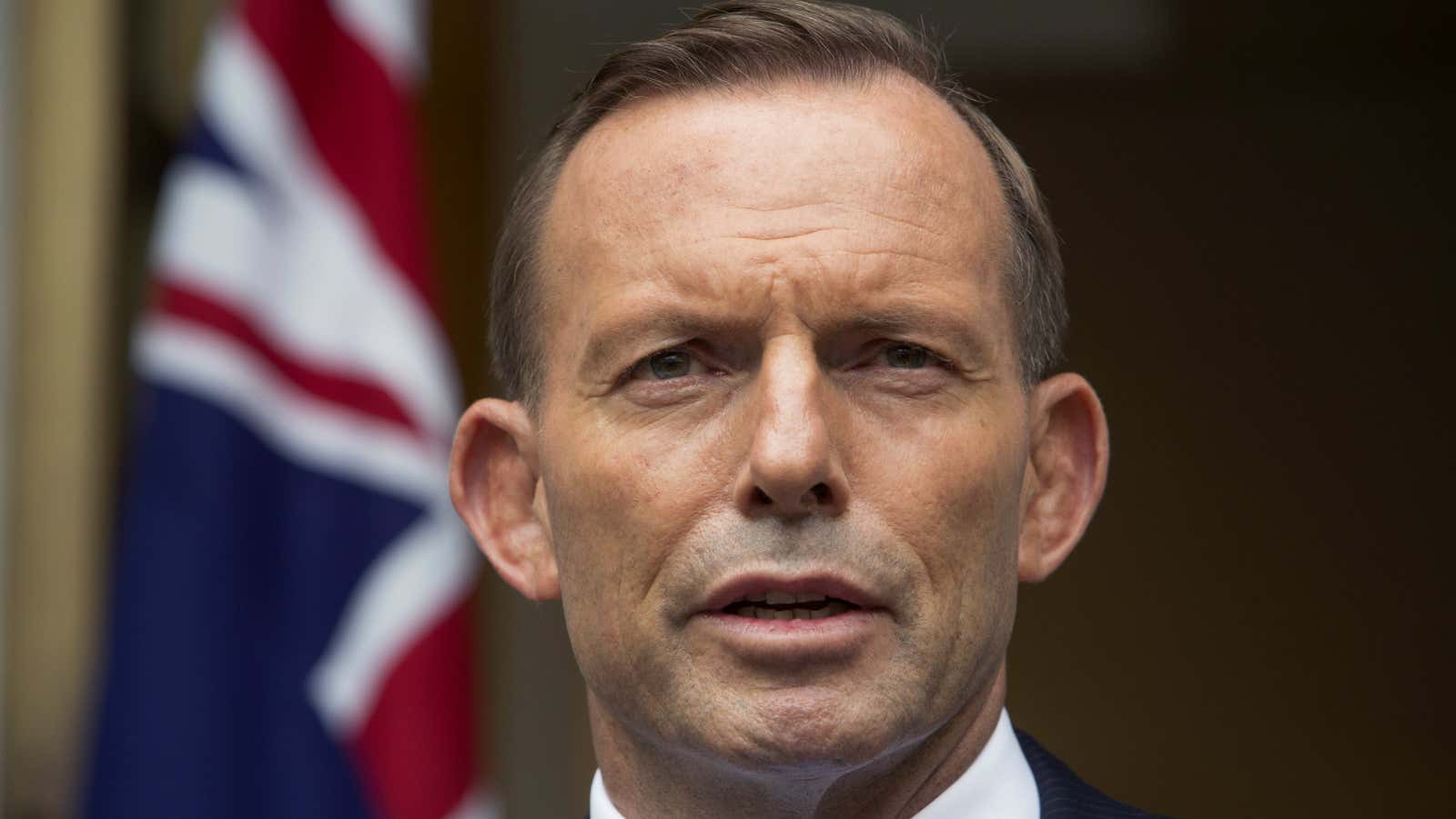The Australian government may have broken Australian, Indonesian, and international maritime laws if it has, as reported, paid human smugglers to sail their boats away from Australian waters, human rights activists told Quartz.
“This really tests the boundaries of Indonesian and international law,” said Elaine Pearson, the Australian director of Human Rights Watch. If you “look at the international protocol on people smuggling that Australia has signed,” the cash payments, if they were made, could be defined as “facilitating people smuggling,” she said.
Last week, an Indonesian police chief said that Indonesian crew members from a boat carrying dozens of asylum seekers were paid $5,000 each, in cash, by Australian officials to turn the boat back to Indonesia. The United Nations High Commission for Refugees has spoken to passengers on board, and believes the claim, a UNHCR spokesman told the BBC.
When questioned about the allegations last week, Australian prime minister Tony Abbot would not confirm or deny the reports, telling Melbourne radio station 3AW, “What we do is we stop the boats by hook or by crook.”
The boat in question was reportedly heading for New Zealand, further complicating the issue.
Hugh de Kretser, a lawyer and executive director of the Human Rights Law Centre in Australia said that if that was the case, the Australia government may also have broken international maritime laws. “It’s not just the issue of the payments being made,” he said. “There’s also the legal issues about the power to intercept, the power to detain, and the power to turn these people around.”
If the payments did, in fact, happen, here’s a rundown of the laws they may have broken.
Australian criminal law: Any such payments are likely to have violated section 73.3.A of the Australian Commonwealth Criminal Code and also contravened the Australian Migration Act. The criminal code and the migration act both outlaw people smuggling, or providing assistance to people smugglers.
Australian maritime law: Under Australia’s Maritime Power’s Act, Australian customs and Navy have the power to intercept and detain vessels in Australian waters, and detain people on board those boats in Australian waters.
But if the people smugglers were in fact in international waters and heading to New Zealand, these powers of detention would not be triggered, leaving Australia’s government in violation of its own maritime law.
International law: Australia is a signatory to the International Protocol against the Smuggling of Migrants by Land, Sea and Air, and any payment to people smugglers would be in contravention of this law.
Indonesian law: The crew of the boat in question are being held in Indonesia on charges of human smuggling and bribery. Both Indonesia’s anti-human trafficking bill, which makes the “giving and receiving of payments” related to trafficking illegal, and its anti-corruption bill may apply.
Whether it has broken laws or not, human rights activists said the government had broken the trust of the Australian people by continually refusing to answer questions about the situation, or about how taxpayers money was used.
“It’s a sad reflection on our democracy that the Australian people are getting more information from Indonesia than our own government about this serious issue,” de Kretser said.
“People are also very angry about the secrecy that surrounds this issue under this government,” Pearson added. “If Australia’s tax payer money has been spent in this way we have a right to know.”
